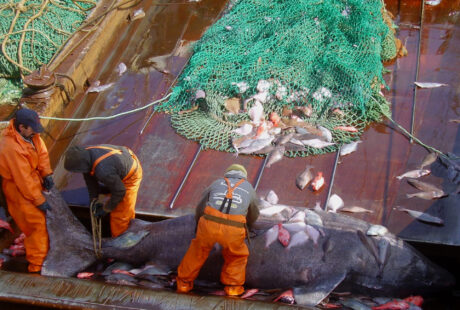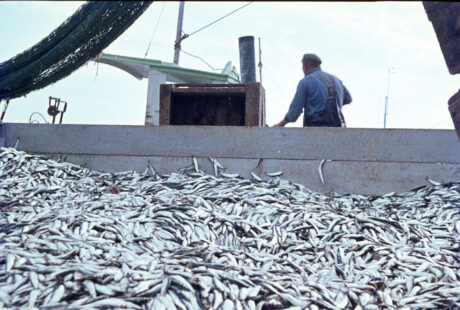On 6 December, the Ocean Action day of the climate summit in Madrid (COP25), Seas At Risk, together with Our Fish, convened a group of ocean experts, including the UN Special Envoy for the Ocean, scientists and NGOs, to address how ending overfishing can mitigate climate change. They called for immediate action by the EU and governments worldwide to end overfishing in order to mitigate the impact of climate change on the world’s oceans.
In the wake of the UN Intergovernmental Panel on Climate Change (IPCC) Special Report on the Ocean and Cryosphere, there is growing awareness of the key role of the ocean as a climate change mitigator, with COP25 dubbed the ‘Blue COP’. Fish and marine life are the engines of our global ocean, yet persistent overfishing severely hinders the ocean’s capacity to mitigate and adapt to climate change. Allowing fish populations to replenish increases fish abundance, contributing to a healthier marine environment and bolstering the ocean’s capacity to cope with the climate crisis.
Rebuilding fish populations is not only good for ocean resilience, it also fosters a fishing industry and coastal communities that are economically viable. Sufficient fish stocks mean a sustainable level of fishing from a larger base and for a longer period, increasing incomes and jobs for fishers and coastal communities. In addition, more fish dying natural deaths and falling to the bottom of the sea would increase carbon sequestration. Finally, an abundant fish population would make fishing much easier, meaning that fishers would need less heavy gear and would not have to steam so far – reducing both costs and harmful CO2 emissions.
After decades of overfishing, EU Member States reformed the Common Fisheries Policy and agreed to end overfishing of all fish stocks by 2020. Despite this agreement, however, 41% of the fish stocks in the North East Atlantic and 87% of fish stocks in the Mediterranean are still overfished. In October, EU Fisheries Ministers once again allowed overfishing to continue in 2020 for some Baltic fish populations.
The clear lack of political will has persisted despite the reform of the Common Fisheries Policy. Fisheries ministers see fish as a resource for industry and food but not as an essential part of the marine ecosystem, necessary for ocean resilience. They permit fishing industry representatives in their meetings and thus focus on short-term profits, at the cost of long-term economic viability of the fishing industry. Economics aside, they overlook entirely the need for ocean resilience and the role of fish in our planet’s marine life support system. But the impact of overfishing goes far beyond the few players with direct interest in fish, and we have to start considering the ocean as our planet’s life support system. That is why we believe that decisions on fishing limits are best taken out of the fisheries realm and instead integrated into national climate plans.
The time has come to finally end overfishing. Not just because it is the law or because it makes socioeconomic sense, but because we need immediate climate action. This week sees the start of the negotiations between Norway and the EU on fishing limits for shared fish populations, followed by the determination, in 10 days’ time, of fishing limits for the North East Atlantic by the EU Fisheries Ministers. Immediate action is possible – all it will take is political will and a vision of a better Europe.
COP25 Call for governments to end overfishing to counter climate crisis – YouTube

Posted on: 6 December 2019


